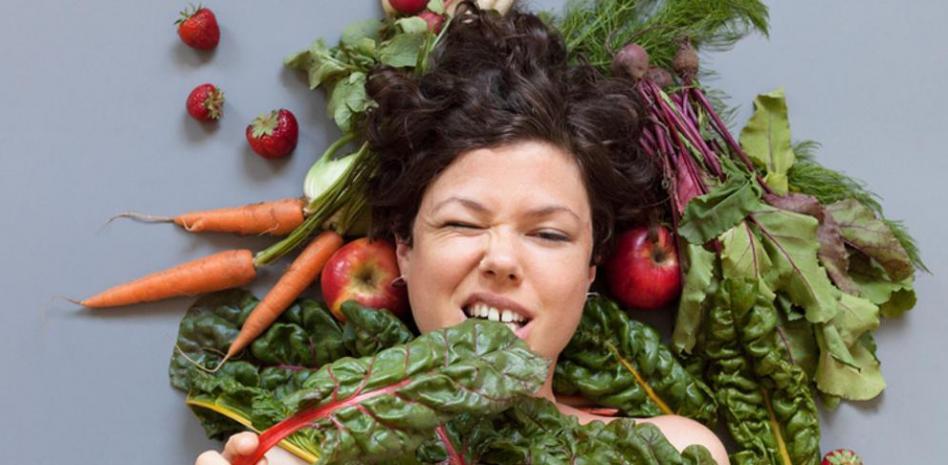06
01/2023
Do you know what happens in your body if you eat vegetables every day? Most vegetables are low in calories and devoid of saturated fat or cholesterol, but high in vitamins, minerals, antioxidants, and fiber, as Healthline recalls.
The World Health Organization recommends at least 400 grams of fruits and vegetables daily, if possible in different colors, which is equivalent to about 5 pieces.
An extensive study published in the scientific journal The Lancet, which stresses the importance of reducing meat consumption and increasing that of legumes, whole grains or nuts, recommends taking 200 grams per day should be fruit and 300 grams Made of veggies.
Your body will experience numerous positive changes if you put more vegetables in the shopping basket and make them the protagonists of your daily menu: your stress will be reduced, your well-being will increase and the chances of suffering future illnesses will be much less.
Learn about the benefits of adding more vegetables and plant-based foods to your plate.
Markus Spiske/Unsplash
Grateful Gut
According to the Mayo Clinic, women should aim to eat at least 21 to 25 grams of fiber per day, 30 to 38 grams for men.
This nutrient will help you have better digestion, eliminate more toxins and waste through the feces, avoid gastrointestinal problems, improve cholesterol and blood sugar levels and also control weight.
Some of the foods richest in fiber are artichokes, broccoli, avocado, blueberries and raspberries, peas or oats.
You will live longer

CBS News reports an exciting discovery by scientists at Imperial College London after analyzing 95 studies on fruit and vegetable intake. The meta-analysis included 2 million people from populations around the world and evaluated up to 43,000 cases of heart disease, 47,000 cases of stroke, 81,000 cases of cardiovascular disease, 112,000 cases of cancer, and 94,000 deaths.
The findings are clear: eating more than 5 pieces of vegetables a day reduces the risk of heart problems, accidents such as strokes, cancer and premature death. One of the main conclusions is that eating 10 servings of fruits and vegetables per day would prevent 7.8 million premature deaths worldwide.
Researchers stress the potential of leafy greens and cruciferous vegetables to extend life and prevent disease.
You can access the study in the International Journal of Epidemiology.
You will return your skin to youth
Eating more vegetables daily improves your hair, nails, teeth, and especially the skin, thanks to its richness in phytonutrients, vitamin C or water, responsible for the hydration.
These components prevent cell damage caused by free radicals, responsible for oxidative stress and aging. They are key to coping with stress, solar radiation or environmental toxins.
For the skin, do not forget to increase the consumption of red and orange vegetables, rich in beta-carotene.
You'll get fewer colds, infections and other illnesses
Amanda Frank/Unsplash
Nutrients such as vitamin A take care of the eyes by protecting it from cataracts or macular degeneration, while vitamin C is key to the health of your gums or to heal wounds. Selenium, zinc or magnesium are also involved in disease prevention.
Vegetables are the best pharmacy: they strengthen your immune system and help you have better defenses against infections and colds.
You will combat stress and anxiety
Vegetables are rich in essential nutrients to prevent depression and combat stress and anxiety thanks to the vitamins of group C and B, omega 3 fats or magnesium. Some of the ones that will help you the most are spinach or red pepper.
Healthier Pregnancy
The folic acid present in many vegetables will help you have a better pregnancy, especially during the first trimester. This nutrient, present in green leafy vegetables, especially asparagus, as well as citrus fruits or avocados, prevents the appearance of problems during the development of the fetus, such as spina bifida.
Protection against cancer
Scientific evidence suggests that 20-25% of malignant tumors could be avoided with a good diet, rich in nutrients such as citrus flavonoids, anthocyanins and polyphenols from aubergines, luteolin from spinach or lycopene from tomatoes and carrots.
Heart Healthy
According to Eat This, Not That, a plant-based, whole-food diet has the ability to improve cholesterol, lower blood pressure, and not only prevent and treat heart disease, but also reverse them.
The Mediterranean diet, where vegetables, grains and legumes are protagonists, has also proven its efficiency for living longer and better, taking care of the heart and preventing numerous diseases.
Some of the healthiest and most complete vegetables that should have a leading role in your diet are spinach, carrots, broccoli, garlic, onion, cabbage, asparagus, pumpkin, peppers or sweet potatoes.

- 442
- What day wears red for women's heart health?
Related Articles
How many sit-ups should I do a day to get rid of my belly?
30/01/2022Flattening the abdomen or reducing the fat in this area is a difficult task. But don't despair, we will solve the question: how many sit-ups should I do a day to eliminate the belly. Abdominal fat...
Jalisco The Ministry of Health invites men and women to learn about family planning services
04/02/2022The Jalisco Ministry of Health invites men and women of reproductive age to learn about and use the various services offered by the Family Planning and Contraception Program, which...
Coronavirus Spain today | | Health The Trust Project
18/03/2022The Ministry of Health has reported 3,261 new coronavirus infections and 155 deaths, while the cumulative incidence drops more than six points in 24 hours to 109.3 cases. There is...
Telva International day against gender violence: screens multiply mistreatment against women
01/02/2022SaludUpdated Change of scenery, same victims. On the International Day for the Elimination of Violence against Women, we highlight how aggressions have been copied to the digital sphere, increasing...